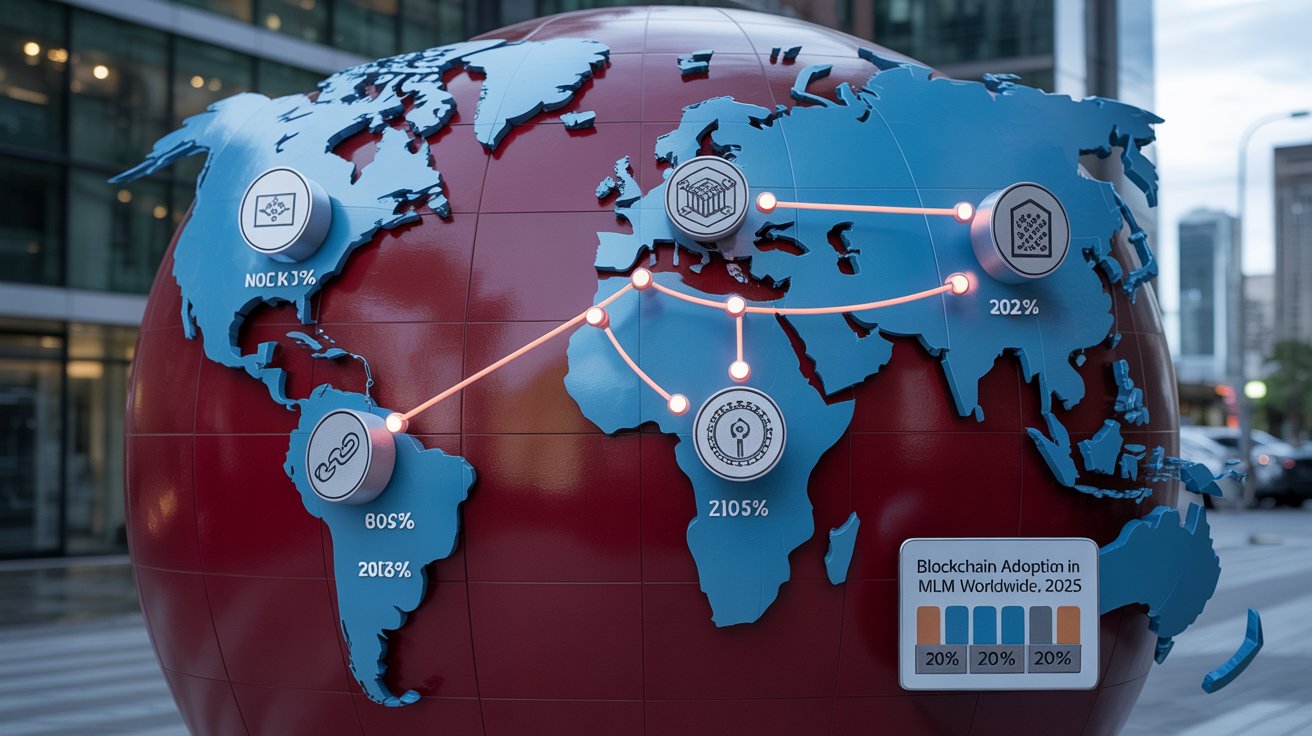

Blockchain in MLM represents the next evolution of transparency and automation in network marketing. By integrating blockchain technology, MLM businesses can securely record transactions, automate complex commission structures through smart contracts, and provide distributors with verifiable, tamper-proof data. This not only eliminates disputes and manual errors but also builds trust among participants by ensuring that every payout and product movement is traceable and transparent. As global adoption rises, blockchain is transforming MLM from a trust-based model into a technology-driven ecosystem built on accountability, speed, and fairness.
Blockchain is no longer a niche curiosity for cryptocurrencies — it’s become a toolkit companies use to add transparency, automate payouts, and harden record-keeping. Multi-level marketing (MLM) — an industry that historically depends on trust in distributor compensation and product provenance — is an obvious candidate for blockchain experimentation. This article summarizes the newest trends, evidence, and practical takeaways for marketers and platform builders.
Across industries, the overall blockchain market is forecast to expand rapidly, creating a tailwind for vertical uses such as MLM. Projections show the market expanding from single-digit billions in the early 2020s into the tens or hundreds of billions by the end of the decade.
Why that matters for MLM: Lower integration costs and more off-the-shelf smart-contract platforms mean smaller MLM operators can pilot blockchain-enabled features (e.g., automated smart-contract payouts, tamper-proof distributor records, and tokenized loyalty) without building everything in-house.
Field evidence and academic work highlight two practical, high-value blockchain use cases for MLM:
Adoption of blockchain in MLM tends to follow broader crypto and blockchain activity. Countries such as India, Indonesia, the Philippines, and some Latin American nations recorded high crypto usage in 2023–2024. This familiarity lowers the friction for crypto-native MLM features (token incentives, wallet payouts).
By contrast, regions with stricter regulatory stances or low retail crypto activity have seen fewer public MLM blockchain pilots due to compliance overhead (KYC/AML for token payouts).
There is not yet a single authoritative global statistic. The picture is fragmented:
Outlook: Expect adoption in the single-digit percentage range among established MLM firms today, with larger jumps coming as enterprise blockchain services and regulatory clarity arrive.
Blockchain solves technical problems, but it doesn’t automatically solve legal risks. Regulators are watching MLMs that use tokens closely because token models can blur the line between product sales and investment schemes. Firms must design compliance and product-led economics first, then choose blockchain where it adds real value.
Blockchain adoption in MLM is best described as selectively experimental. Infrastructure growth will lower costs and increase tool availability, enabling a broader rollout of legitimate, compliance-oriented blockchain features. However, the industry’s history with crypto scams means operators must prioritize legitimacy, compliance, and clear product value first.
Blockchain brings transparency, automation, and tamper-proof commission tracking to MLM structures, reducing fraud and disputes among distributors.
Regions like India, Indonesia, the Philippines, and parts of Latin America are leading blockchain-driven MLM adoption due to high crypto literacy and digital openness.
Smart contracts execute commission payments automatically based on pre-set compensation rules, ensuring accuracy, faster payouts, and transparent auditing.
Yes, when they comply with financial and securities regulations. Blockchain adds transparency, but compliance and product-led models remain critical for legality.
Expect hybrid systems combining off-chain operations with on-chain verification, tokenized loyalty programs, and regulatory-compliant smart-contract engines.
Key sources (selected)